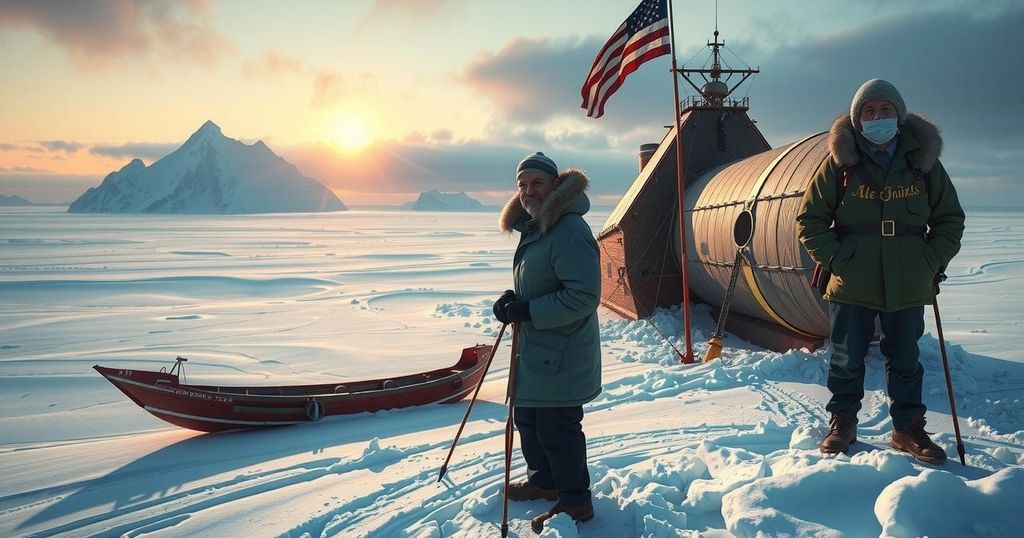Chilean President Gabriel Boric made history by traveling to the South Pole, the first Latin American leader to do so. His expedition aims to extend environmental monitoring in Antarctica. Accompanied by scientists and officials, President Boric emphasized Chile’s commitment to peaceful and scientific activity on the continent, aligning with its territorial claims. The trip represents a significant milestone for Chile’s ongoing research and sovereignty in Antarctica.
On a significant expedition, Chile’s President Gabriel Boric embarked on a journey to Antarctica’s South Pole, marking a historic moment as no other president from a Latin American country has made such a visit. This two-day trip, dubbed Operation Pole Star III, aims to enhance environmental surveillance of pollutants in the Antarctic region. President Boric was accompanied by scientists, military leaders, and government officials, traveling from Santiago to Punta Arenas and then to the US-operated Amundsen-Scott South Pole Station, as reported by Televisión Nacional de Chile (TVN).
Chile is among seven nations asserting territorial claims in Antarctica, which include Argentina, Australia, France, New Zealand, Norway, and the United Kingdom. As a signatory of the Antarctic Treaty, Chile upholds that the continent should be utilized solely for peaceful and scientific initiatives. Historically, Chile has ventured into scientific research in Antarctica’s northern area, yet the government is now pursuing an expansion of studies into the continent’s western section. In reflecting on this journey, President Boric expressed that it is both an honor and a notable achievement.
He articulated, “This is a milestone for us. It is the first time a Chilean and Latin American President has visited the South Pole,” according to TVN. Furthermore, he emphasized that the journey symbolizes “the commitment we have for (Antarctica) to be and continue to be a continent of science and peace,” affixing significance to Chile’s sovereignty claims over the region. Boric pointed out the pride stemming from being one of the twelve nations represented in the Antarctic Treaty, stating, “From here everything is north: there are only 12 flags flying. One of them is the Chilean flag and that is a source of pride.”
On Saturday, President Boric shared a moment from his trip on X, expressing greetings from Chilean Antarctica while donning winter attire. His statement, “Good morning from Chilean Antarctica, where everything begins,” reflects the pride and significance this expedition holds for his administration.
This historic trip by President Boric to the South Pole is noteworthy as it represents a step forward in Chile’s commitment to environmental monitoring in Antarctica. The Antarctic region is of particular interest due to its unique ecosystems and potential impact of climate change. By enhancing scientific research and collaboration, Chile aims to strengthen its role in the governance of the region, especially given its territorial claims as delineated by the Antarctic Treaty. This treaty allows only for peaceful and scientific activities on the continent, underscoring international collaboration amidst territorial aspirations.
In summary, President Gabriel Boric’s visit to the South Pole signifies a groundbreaking moment for Chile and Latin America, showcasing the nation’s dedication to scientific research and environmental stewardship in Antarctica. It establishes a strong statement regarding Chile’s territorial claims and commitment to maintaining the continent as a zone of peace and science. The successful completion of Operation Pole Star III could pave the way for future research initiatives and international cooperation in one of the world’s most pristine environments.
Original Source: www.cnn.com






